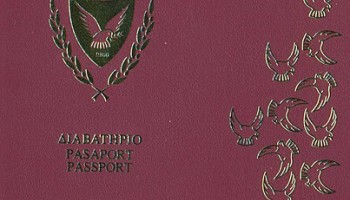However, export figures obtained by the Organized Crime and Corruption Reporting Project (OCCRP) show that last December, Jordan suddenly began buying Croatian weapons including rocket or grenade launchers, artillery guns, and large volumes of ammunition. Paying $6.5 million US dollars, Jordan bought 230 tonnes of weaponry – enough to fill several planes.. The shipments do not follow regular business patterns. Croatia's previous arms exports to that country consist, in total, of 15 pistols worth US$1053 sold in 2001.
The shipments appear to be supported by information on the ground in Syria.
Within weeks of the trade, powerful new weapons began appearing among Syrian rebel fighters. They match the categories listed in the Croatian export records: rocket and grenade launchers, artillery guns, and plenty of ammunition. What's more, this new arsenal was distinctively Yugoslavian. In YouTube videos, Syrians pose with M-60 and M-79 antitank guns, designed in Tito-era Yugoslavia, and with the Croatian-made RBG-6 grenade launcher . They fire Soviet RPG-22 rocket launchers, now found in the Croatian army.
Since January, bloggers and journalists have been following the spread of these ex-Yugoslav weapons in Syria, and retracing the route that brought them there. Speculation has focused on cargo flights made from Croatia by JIAC, an airline controlled by the Jordanian air force.
In December, a plane-spotter at Zagreb airport twice photographed JIAC cargo planes . These were later recorded flying near Cyprus, consistent with a destination of Jordan.
Such sightings are a rarity, given Croatia's limited trade with the Arab state. Croatian trade records indicate there are few other Croatian exports which they could have been carrying to Jordan. Most other exports that month – trucks and concrete mixers – would not likely have been shipped by air transportation. The only other items were helmets and 35 tonnes of chocolate.
American officials interviewed anonymously by the New York Times suggest that guns, not chocolate bars, were loaded on to those planes in Zagreb . They claim that the Saudi government, guided by US intelligence officers, arranged for the munitions to be bought in Croatia and distributed to Syrian rebels.
The Croatian government insisted in a letter to the New York Times that it has not supplied to Syria . To do so would violate an EU arms embargo, which Croatia voluntarily obeys as it prepares for EU accession in July. Its sudden arms sales to Jordan, however, are a matter of public record. These exports would be entirely legal, provided that the weapons remained in Jordan, and were not resold or transferred. However, Croatian law provides for arms export licenses to be revoked where there is concern that weapons “might be delivered to forbidden destinations” – as would be the case if these weapons reached Syria . It also imposes severe penalties for violation of the export laws.
Croatian export data since January is unavailable. The Croatian press has reported sightings of Jordanian planes in January and February . Their cargo remains unknown.





